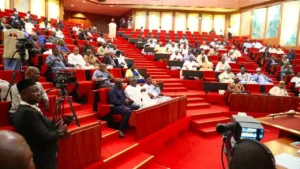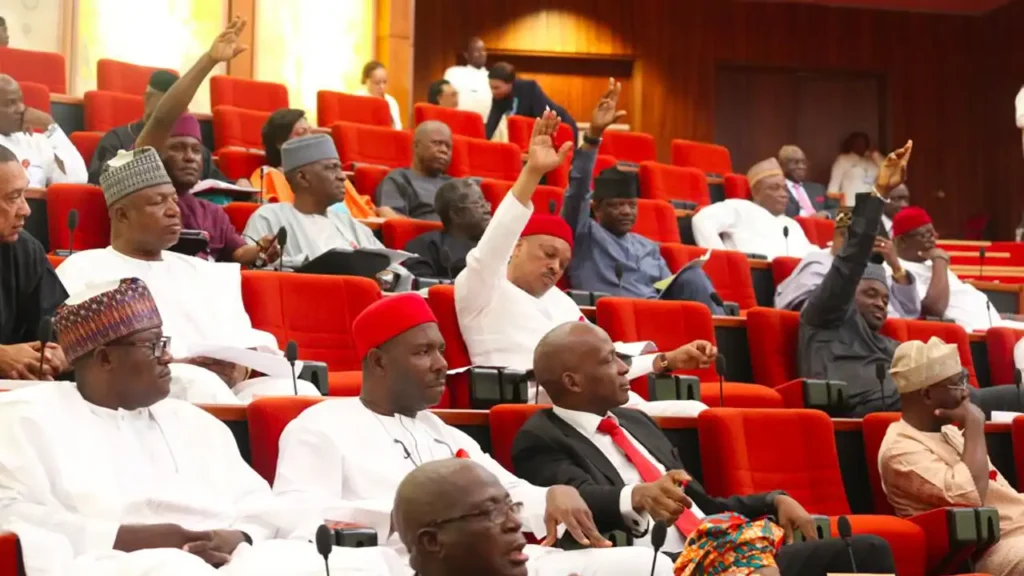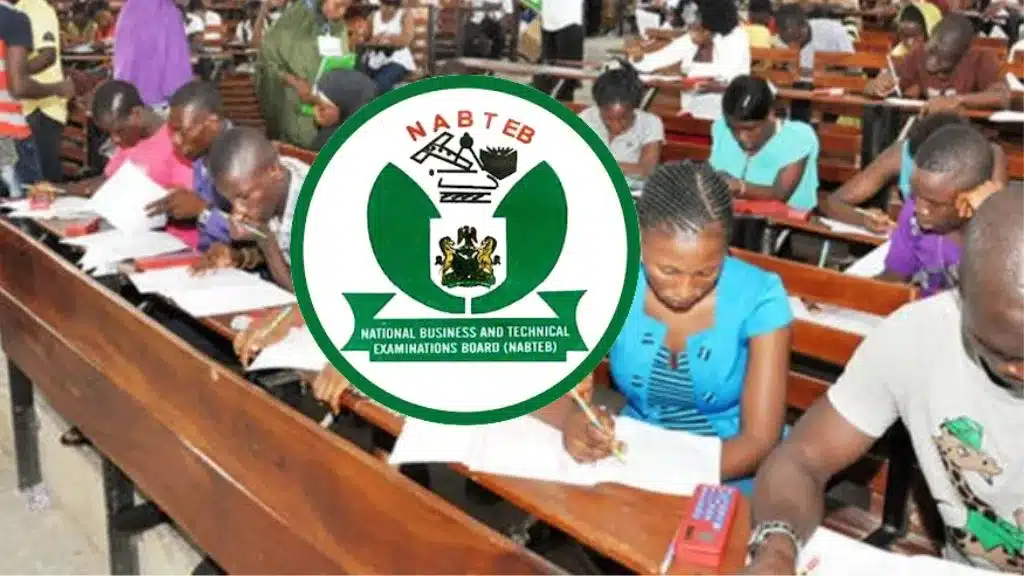In a controversial move that ignited widespread criticism, the Nigerian Senate voted against a key provision in the proposed amendment to the Electoral Act that would have granted the Independent National Electoral Commission (INEC) the explicit power to electronically transmit election results. This decision, made in July 2021, was widely condemned by civil society groups, opposition lawmakers, and pro-democracy advocates who saw it as a deliberate attempt to undermine electoral transparency.
The contentious vote took place during the clause-by-clause consideration of the Electoral Act Amendment Bill. Specifically, the Senate rejected Section 52(3), which would have empowered INEC to determine whether election results should be transmitted electronically “where and when practicable.”
Instead, the chamber passed an altered version that subjected INEC’s authority to the approval of the Nigerian Communications Commission (NCC) and the National Assembly—a move critics described as unconstitutional and a threat to the independence of the electoral body.
Public Outrage as Critics Decry Erosion of Electoral Transparency
Almost immediately after the Senate’s vote, public outrage erupted across the country. Many Nigerians took to social media platforms to express their disappointment and anger, describing the Senate’s decision as a betrayal of democratic values and a calculated effort to rig future elections through outdated manual processes.
Civil society organizations—including YIAGA Africa, the Centre for Democracy and Development (CDD), and the Transition Monitoring Group (TMG)—issued strong statements condemning the move. They argued that the electronic transmission of results is not only technologically feasible but critical for reducing electoral fraud, enhancing credibility, and restoring public trust in the electoral process.
Opposition lawmakers in both chambers of the National Assembly also accused the ruling All Progressives Congress (APC) of orchestrating the vote to maintain control over the electoral system ahead of the 2023 general elections. Some senators walked out of the plenary session in protest, while others insisted that the legislative decision was influenced by partisan interests rather than democratic principles.

INEC’s Readiness and Technological Capacity Undermined
The Independent National Electoral Commission had earlier affirmed its capacity to transmit election results electronically, citing successful test runs in various off-cycle elections. The Commission noted that it had been working with technology such as smart card readers and the Bimodal Voter Accreditation System (BVAS) to strengthen electoral credibility.
In the wake of the Senate’s decision, INEC officials expressed concern over the implication that its independence could be compromised by subjecting its operations to the approval of regulatory bodies like the NCC. Many electoral experts emphasized that granting INEC full autonomy is a constitutional requirement and essential for the impartial conduct of elections.
Observers also pointed out that the NCC had no legal mandate to regulate electoral processes, and its involvement could politicize election logistics.
Senators Defend Position, Cite Infrastructure and Coverage Issues
In defense of their decision, several APC senators argued that electronic transmission of results should only occur in areas with adequate network coverage. They claimed that large parts of Nigeria’s rural regions lacked the telecommunications infrastructure necessary to support real-time electronic result submission.
Senator Sabi Abdullahi and other proponents of the amendment insisted that involving the NCC would help assess the feasibility of digital transmission in specific locations. According to them, this was not an attempt to interfere with INEC’s autonomy but a practical safeguard against disenfranchisement in low-connectivity areas.
However, critics pushed back strongly, noting that INEC should be the sole authority to determine operational logistics for elections, just as it had successfully done in past elections using its discretion.
Protesters and Civil Groups Demand Reversal
The backlash intensified as activists and civil society groups staged protests in major cities such as Abuja and Lagos. Demonstrators carried placards bearing slogans like “Let INEC Work,” “Protect Our Votes,” and “Say Yes to E-Transmission.”
Many advocates called on President Muhammadu Buhari not to sign any version of the Electoral Act Amendment Bill that stripped INEC of its independence. They insisted that the proposed restriction contradicted Nigeria’s democratic goals and risked fueling apathy among voters already disillusioned by electoral malpractice and poor governance.
House of Representatives Takes a Different Path
Interestingly, the House of Representatives initially adopted a more progressive stance. During its own review of the bill, the House approved a version of Section 52(3) that allowed INEC to determine the mode of result transmission without external interference.
The discrepancy between the Senate and House versions of the bill led to a conference committee being set up to harmonize the differing positions. Reform advocates hoped that the final version would restore INEC’s autonomy and support the full digitization of election result processes.
Calls for Presidential Intervention Grow Louder
Amid the uproar, attention shifted to President Buhari’s role in finalizing the bill. Several groups urged him to reject the Senate’s version unless it was amended to reflect public demand for electronic transmission of results.
Public figures, including former government officials and renowned academics, warned that failure to adopt the reform would damage the credibility of future elections and further erode public confidence in Nigeria’s democratic institutions.
Even some members of the President’s party expressed discomfort with the Senate’s decision and the growing perception that the APC was afraid of transparent elections.
Conclusion: Democracy at a Crossroads
The Senate’s rejection of electronic result transmission sparked a wave of nationwide resistance, underscoring just how central electoral reform has become to Nigeria’s political future. As the country prepared for the crucial 2023 general elections, the decision cast a shadow over legislative intentions and democratic integrity.
While proponents argued logistical constraints, critics viewed the move as a deliberate attempt to maintain an outdated and manipulable system. Ultimately, the episode reaffirmed the need for strong institutions, independent electoral bodies, and citizens’ vigilance to safeguard democracy in Nigeria.
The question remained: would public pressure and reason prevail before the 2023 elections—or would partisan interests succeed in stalling a critical reform that most Nigerians clearly wanted?






